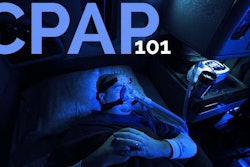World Sleep Day is Friday March 18, and it’s dedicated by the World Association of Sleep Medicine (WASM) to educating the public on the importance of quality sleep. The day’s slogan “Good Sleep is a Reachable Dream.”
According to WASM, 4 percent of the U.S. adult population suffers from obstructive sleep apnea. In addition, sleep apnea is especially a problem for truck drivers.
But what are the facts on sleep apnea?
Here are five things to know about sleep apnea:
1. What is obstructive sleep apnea? Obstructive sleep apnea occurs when the upper throat muscles become too relaxed during sleep and restrict the airway. This can happen for 10 seconds to a minute or longer, according to WASM, and causes the blood’s oxygen level to drop.
2. What are the symptoms of sleep apnea? Nighttime symptoms of sleep apnea, according to Phillips Respironics, include: loud persistent snoring, witnessed pauses in breathing, restless sleep, frequent bathroom visits, and choking or gasping for air during sleep. Phillips Respironics says daytime symptoms of sleep apnea include early morning headaches, excessive daytime fatigue, depression or irritability, sleepiness during routine activities and poor concentration.
3. What is a CPAP machine, and what does it do? CPAP stands for continuous positive airway pressure. CPAP machines work to alleviate sleep apnea by constantly flowing airway pressure to the throat so airways remain open during sleep, according to Phillips Respironics. There are multiple types of CPAP masks that vary to match an individual’s sleeping habits. CPAP mask styles include nasal masks, full face masks, minimal contact masks and more.
4. What harm does sleep apnea cause? According to the National Heart, Lung and Blood Institute, sleep apnea can increase an individual’s risk of heart failure, diabetes, stroke, high blood pressure, heart attack, obesity, arrhythmias and can increase the chance of an individual having a driving or work accident.
5. Is there only one kind of sleep apnea? The short answer is no. There are three main types of sleep apnea, according to Mayo Clinic. Obstructive sleep apnea is the most common form of sleep apnea. Central sleep apnea happens when the brain fails to send accurate signals to the muscles that control breathing, while complex sleep apnea syndrome happens when an individual experiences a hybrid of obstructive sleep apnea and central sleep apnea.








